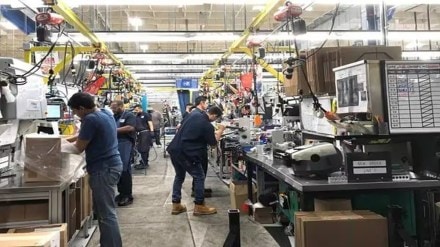The government has decided not to launch production-linked incentives (PLI) for new sectors, other than the existing 14, and another three — new-age bicycles, leather & footwear and toys –- for which Cabinet notes have already been circulated. The likely addition of the three sectors is unlikely to result in any extra budget spending, official sources said, adding that the PLI outlay of Rs 1.97 trillion won’t be raised any further.
The new schemes are being formulated considering their labour-intensive nature and potential for import substitution.
According to the sources, the proposed tweaking of the PLI schemes will let new players to avail the incentives, besides addressing the various concerns expressed by investors about procedural ambiguities.
Following Tuesday’s workshop with stakeholders, the department for promotion of industry and internal trade (DPIIT) has asked the ministries responsible for implementing the PLI schemes for different industry sectors to hold a fresh round of consultation with the beneficiary companies to understand their problems, the sources said. The inputs from the firms would be taken up at the appropriate level for resolution of the issues, they added.
As the scheme has been implemented after the Cabinet approval, some of the changes to the scheme that might become necessary would have to be taken there for resolution. However, no major restructuring of the PLIs are being considered.
“All ministries have been told at the workshop on PLI that was held on Tuesday that, while till now they had conducted wider stakeholder consultations, now they should hold a consultation with the PLI companies. If problems come up, they should tell the DPIIT so that it can take them to the appropriate level for redressal,” an official said. DPIIT is the coordinating ministry for the scheme.
While sectoral interactions with ministries would continue, the next broader stakeholder consultation has been scheduled for the first week of October.
At the last meeting with the government, some companies flagged the issue of delays in clearances which is impacting the implementation of the projects. Also cited was the difference of opinion with the officials on the interpretation of some of clauses of the scheme like what can be included when they claim incremental investment and production.
The official admitted that as the scheme gets implemented on the ground, some issues have indeed come to light which can be further discussed. Regarding delays in getting projects off the ground due to time taken in clearances at the local level, the DPIIT assured the stakeholders its support and intervention.
Commerce and industry minister Piyush Goyal said on Wednesday that the government is committed to fostering a conducive business environment and accelerating growth in the PLI sectors.
At the workshop, the companies were also asked by the government to complete their investment, production and employment targets, the official said.
Some participants wanted deeper changes in the schemes which the government declined, saying that these schemes were launched after extensive stakeholder consultation and now it cannot be changed at the start-up stage, chairman of Engineering Export Promotion Council, Arun Kumar Garodia, who attended the workshop, said.
He said small issues coming in the way of implementation the government would be sorting out but changes in the basic structure of the scheme cannot take place.
The government wants the industry to take full advantage of the scheme. Industry is satisfied with the way it is functioning. Some pinpricks are there which the government will be sorting out,” Garodia said. He said some sectors under the PLI scheme have already started showing the results and some industries are yet to begin production that will be shortly coming in.
Of the 14 sectors covered by PLI, activity has been visible in eight sectors – large-scale electronics, telecom, pharmaceuticals, food processing, white goods, and auto and auto components.
Tuesday’s meeting also discussed the reason for slow offtake in sectors like High Efficiency Solar PV Modules, Advance Chemistry Cell (ACC) Battery, Textile Products, and Specialty Steel.
The scheme’s outlay for incentives has been kept at `1.97 trillion. The incentive package for each sector runs for five years and as new sectors have been added to it over time the scheme will run till 2028.
Since the start of the scheme only `2,900 crore of incentives have been disbursed against the production of Rs 6.75 trillion. Since the launch of the scheme, Rs 62,500 worth of investments have been realised.
Wherever the industry was facing issues of claim disbursement because of some gaps in documentation, the Project Management Agencies (PMA) are hand holding them,” the official said.
While ministries dealing with different industry sectors are responsible for PLI schemes for their sectors, they are being assisted by four PMAs. These agencies do appraisal of applications, determine eligibility criteria for incentives and monitor performance and progress.
The Industrial Finance Corporation of India is handling 10 sectors under PLI, Small Industries Development Bank of India two schemes, Metallurgical and Engineering Consultants and IREDA and Solar Energy Corporation of India are managing one sector each.
The workshop on Tuesday saw participation of 10 implementing central departments, project management agencies, industry associations like CII, FICCI and Export Promotion Councils.
Representatives from Wistron, Samsung, Dell, Wipro GE, Dr Reddy’s, Tata Motors, Mahindra and Mahindra, Nokia Solutions, ITC, Dabur, JSW and Reliance also participated in the workshop.
